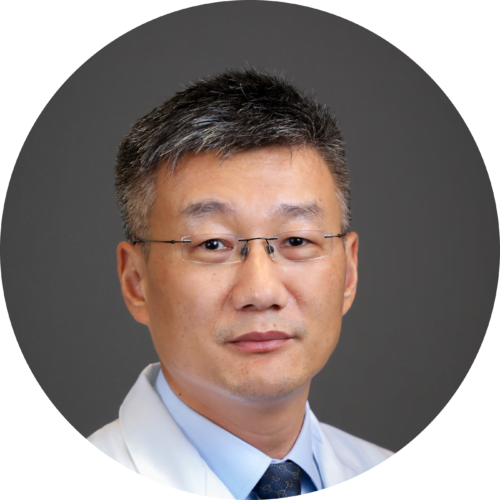Designing a Large Multi-center Neuromodulation Stroke Recovery Trial – Key Components to Consider
Wayne Feng, Chief for the Division of Stroke & Vascular Neurology, Stroke Director of Duke Comprehensive Stroke Center, Tenured Professor of Neurology and Biomedical Engineering, Durham, USA
As evidence of various neuromodulation technologies emerges for stroke or other acquire brain injury condition, it is important to design high quality scientific rigorous clinical trial to demonstrate and confirm the safety, efficacy of neuromodulation technology. It is an important part of science advancement and translational process. This presentation will use TRANSPORT2 (TRANScranial direct current stimulation for POst-stroke motor Recovery – a phase II sTudy) study as an example to demonstrate the key components to consider when designing a multi-center stroke recovery trial – such as dose, montage, outcomes measures, patient selections and adjunctive rehabilitation therapy, power and sample size justification, etc. At the end of presentation, the audience should have a basic understanding of major components of stroke recovery trial design.
Short Bio
Dr. Wayne Feng is the Chief for the Division of Stroke & Vascular Neurology, Stroke Director of Duke Comprehensive Stroke Center, and tenured Professor of Neurology and Biomedical Engineering. Dr. Feng is a physician scientist and his research portfolios include developing imaging biomarker for post-stroke motor outcomes prediction, and use of non-invasive brain stimulation tools, such as, transcranial direct current stimulation (tDCS), vagus nerve stimulation, low intensity focused ultrasound and transcranial light stimulation to enhance post-stroke motor recovery. His research has been actively funded by National Institute of Health, American Heart Association/American Stroke Association and industry. He is currently leading an NIH funded 8.1 million U01 15-center, phase II study called TRANSPORT 2 (TRANScranial direct current stimulation for POst-stroke motor Recovery – a phase II sTudy) – on the NINDS stroke trial network.
Dr. Feng has published 100+ peer reviewed manuscripts and numerous book chapters. He recently co-edited a book –“ Cerebral Venous System in Acute and Chronic Brain Injuries”. Dr. Feng received several prestigious awards for his research work in stroke and stroke recovery including the First “Rehabilitation Award” from American Heart/Stroke Association in 2015, “Franz Gerstenbrand Award” from World Federation of Neurorehabilitation (WFNR) in 2016, Arthur Guyton New Investigator Award, Consortium for Southeastern Hypertension Control (COSEHC) in 2016 and “Clinical Investigator Award” from the Society of Chinese American Physician Entrepreneur (SCAPE). He is the Section Chair of Neural Repair & Rehabilitation, American Academy of Neurology. He is one of six at-large members supporting the Presidium of WFNR and the North America Vice President. He is the scientific program committee member of the world congress of neurorehabilitation 2022. He is the associate editor-in-chief for Translational Stroke Research from 2019 to 2021.

